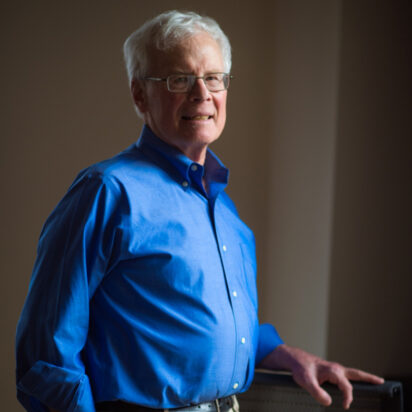Harvey F. Lodish, PhD

Research Highlights
Before closing his lab, Prof Lodish studied the development of red blood cells and the use of modified red cells for the introduction of novel therapeutics into the human body.
Contact
Staff
Teaching
Research:
In 1988, the Lodish laboratory accomplished pioneering work on erythropoietin (Epo), the hormone that controls the production of red blood cells; the group identified and cloned the Epo receptor. This has led to a long and ongoing set of projects on the activation of and signal transduction by the erythropoietin receptor in erythroid progenitor cells, and the regulation of gene expression, apoptosis, and cell division during red cell formation.
Currently they are characterizing many novel genes that are important for terminal stages of erythropoiesis, including chromatin condensation and enucleation. Other work focuses on the regulation of self- renewal, proliferation and differentiation of early (BFU-E) erythroid progenitor cells by extracellular signals including glucocorticoids and oxygen. This has led to the identification and characterization of several molecules, including six that are FDA-approved drugs for other indications, that show great promise as therapeutics for bone marrow failure disorders and erythropoietin- resistant anemias. This research involves extensive computational analyses of large datasets of gene expression profiles and chromatin modifications generated from cells at different stages of human and mouse red cell development.
Biography:
Dr. Lodish received his A.B. degree Summa Cum Laude in Chemistry and Mathematics from Kenyon College in 1962 and his Ph.D. degree in genetics from the Rockefeller University in 1966. Following two years of postdoctoral research at the M.R.C. Laboratory of Molecular Biology with Drs. Sydney Brenner and Francis Crick, he joined the faculty of the MIT Department of Biology. He was promoted to Professor in 1976, and in 1983 was appointed Founding Member of the new Whitehead Institute for Biomedical Research. In 1999 he also became Professor of Biological Engineering in the new MIT Department of Biological Engineering.
Over 170 MD, PhD, and MD/PhD students and fellows have trained in his laboratory; two of his trainees have received the Nobel Prize and six have been elected to the US National Academy of Sciences or the Institutes of Medicine.